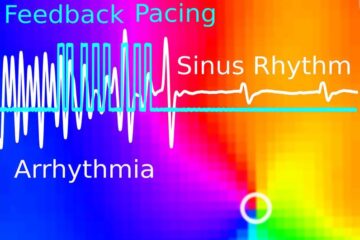Gene defect linked to premature aging

Johns Hopkins Kimmel Cancer Center researchers have identified a gene that, when altered makes cells and animals age prematurely and die. The findings, reported in the May 1 edition of Genes and Development, may provide a new target for therapies that force cancer cells to an early death.
The gene, called PASG (Proliferation Associated SNF2-like Gene), normally works by decreasing the activity of other genes in two different ways: helping to add chemical groups to DNA, in a process known as methylation, or by modifying protein structures called histones that help wind DNA into compact coils.
“In order to grow and stay alive, cells depend on the PASG gene to reduce the activity of other genes, but it’s a very complicated process – much like modifying the engine of an F-15 fighter jet while it’s flying,” says Robert Arceci, M.D., Ph.D., King Fahd Professor and Director of Pediatric Oncology, and director of the study.
The Hopkins team began investigating the PASG gene after finding that its activity is integrally involved in cell growth and mutated forms of the gene occur in acute leukemias. Using genetically engineered mice, Arceci’s team knocked out part of the “core engine” of the PASG gene, decreasing methylation throughout the genome and allowing the wrong genes, particularly those associated with premature aging, to be active all the time. The result was that mice with this mutated PASG protein showed signs of premature aging and profound growth problems, including low birth-weight, graying and loss of hair, skeletal abnormalities, reduced fat and early death.
“To keep body tissues working correctly, the PASG gene appears to help cells regenerate, mature and prevent early aging,” explains Arceci. “Each cell is programmed with a set number of replications before it dies. With a mutated PASG gene, the cell may replicate only a fraction of the time, and then it dies prematurely,” explains Arceci.
“If PASG’s methylation activity could be blocked in human cancer cells, we could potentially cause them to age faster and die earlier,” says Arceci.
Not to be confused with a cell death process called apoptosis, which cuts the DNA into a million pieces, this aging process, called replicative senescence, lets the cell live for a limited period of time with a reduced number of cell divisions before it ages and dies.
The researchers are beginning to screen compounds for activity in blocking the PASG gene in tumor cells and mice. Human studies are not planned at this time.
This research was funded by the Children’s Cancer Foundation, the Higgin’s Scholar Foundation and the National Institutes of Health.
Additional participants in this research were Lin-Quan Sun, David W. Lee, Quangeng Zhang, Weihong Xiao, Eric H. Raabe, Allen Meeker, and David Huso from Johns Hopkins and Dengshun Miao from McGill University, Canada.
Johns Hopkins Medicine
Office of Communications and Public Affairs
Media Contact: Vanessa Wasta
410-955-1287
wastava@jhmi.edu
Media Contact
More Information:
http://www.hopkinsmedicine.org/All latest news from the category: Life Sciences and Chemistry
Articles and reports from the Life Sciences and chemistry area deal with applied and basic research into modern biology, chemistry and human medicine.
Valuable information can be found on a range of life sciences fields including bacteriology, biochemistry, bionics, bioinformatics, biophysics, biotechnology, genetics, geobotany, human biology, marine biology, microbiology, molecular biology, cellular biology, zoology, bioinorganic chemistry, microchemistry and environmental chemistry.
Newest articles

Wildfire danger to increase due to climate change
WSL Institute for Snow and Avalanche Research (SLF) researchers expect an elevated wildfire danger in the Alpine Foreland from 2040 onwards due to changing meteorological conditions. The danger currently remains…

Advanced Brain Science Without Coding Expertise
Researchers at Helmholtz Munich and the LMU University Hospital Munich introduce DELiVR, offering a new AI-based approach to the complex task of brain cell mapping. The deep learning tool democratizes…

Gentle defibrillation for the heart
Using light pulses as a model for electrical defibrillation, Göttingen scientists developed a method to assess and modulate the heart function. The research team from the Max Planck Institute for…





















